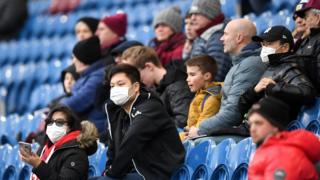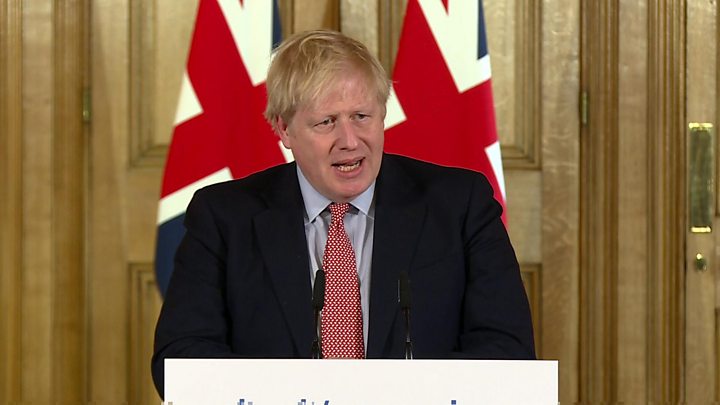Coronavirus: UK's approach 'concerning', says Jeremy Hunt
 Image copyright
Getty Images
Image copyright
Getty Images
The government's decision not to cancel public events over the coronavirus outbreak is "concerning", says ex-health secretary Jeremy Hunt.
His criticism of the UK approach comes as new measures to delay the virus spreading come into effect.
Many other countries have responded to the crisis by closing schools and cancelling sports and arts events.
But Prime Minister Boris Johnson said it was crucial to get the timing right for stricter measures.
In total, 10 people have now died in the UK with the virus.
There have been 596 confirmed cases across the country, but health officials have said they believe the actual number of people infected could be between 5,000 and 10,000.
Mr Hunt, who quit as foreign secretary in July, told BBC Newsnight that the UK was in a "national emergency" and suggested the government's new approach did not go far enough.
Asked about the decision not to cancel large gatherings yet, he said: "I think it is surprising and concerning that we're not doing any of it at all when we have just four weeks before we get to the stage that Italy is at.
"You would have thought that every single thing we do in that four weeks would be designed to slow the spread of people catching the virus."
Much of Italy - the world's worst-hit country after China - is currently in lockdown as the country's tally of deaths has topped 1,000.
Mr Hunt, chair of the Commons health and social care committee, said he was also "personally surprised that we're still allowing external visits to care homes".
He added that the evidence from countries who appeared to have been successful in turning back the virus showed they "moved very early" on introducing social distancing.
On Thursday, Boris Johnson announced new measures aimed at protecting the elderly and those most vulnerable to the disease, which included:
- Anyone with a "new, continuous" cough or high temperature is advised to self-isolate for seven days
- Testing will only focus on identifying people with the virus in hospital
- Schools being advised to cancel trips abroad
- People over 70 and those with pre-existing health conditions being told not to go on cruises
The PM said suspending major public events such as sporting fixtures was still under consideration, but it would be a measure primarily to protect public services, rather than delay the spread.
He also said there was no need to close schools at the moment, saying "the scientific advice is that this could do more harm than good at this time".

The UK government's health advisers are working on the assumption that Britain will not see infection rates peak for up to three months.
Ministers said it was important to get the timing right for stricter measures because people would tire of them after a few weeks.
As the epidemic reaches its peak, it is likely elderly people and those with health conditions will be told to cut social contact and stay at home.
UK plans 'sensible'
Keith Neal, emeritus professor in the epidemiology of infectious diseases at the University of Nottingham, said the measures would help contain the spread of the virus.
He said: "The plans are sensible, it is very easy to say more needs to be done, but there is little evidence to make any decision."
Meanwhile, Susan Michie, professor of health psychology at University College London, said "nobody has the right answer" when it comes to tackling the virus.
However, she said having sports events played behind closed doors could be counterproductive as it might instead lead people to gathering in pubs "in the warmth, where viruses love it".
Scotland is among the countries to have restricted mass gatherings, along with the Irish Republic, which has also closed schools and other public facilities.
Elsewhere, France is one of the latest European countries to close all schools, universities and nurseries. In the US, all major sport has been suspended and Broadway performances are off for a month.
In other developments:
The number of UK cases rose by more than 100 on Thursday - with 491 in England, 60 in Scotland, 20 in Northern Ireland and 25 in Wales.
Public Health England has released new guidance for those staying at home because they have symptoms of the virus - a cough or a temperature of 37.8C (100F) or more.
Its advice states:
- Not to go to work, school, or public areas, use public transport or taxis - or even for a walk
- Those with even mild symptoms of infection should stay at least two metres away from other people in their homes, and should sleep alone
- Those with confirmed or suspected cases should use a separate bathroom
How have you been affected by coronavirus? Get in touch by emailing haveyoursay@bbc.co.uk.
Please include a contact number if you are willing to speak to a BBC journalist. You can also contact us in the following ways: